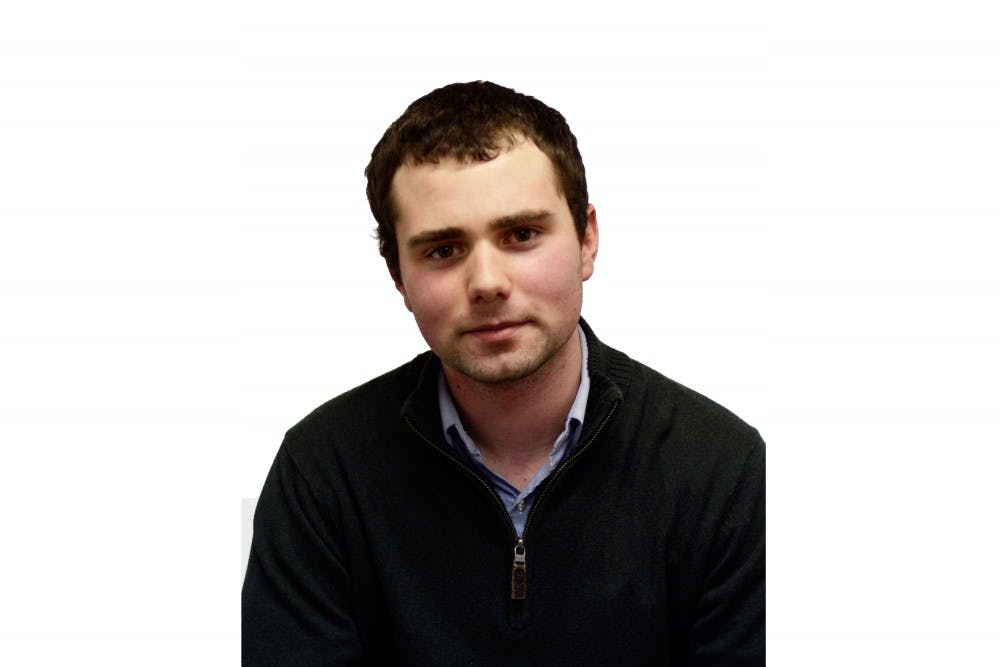On Monday of last week, conservative writer David Horowitz gave a speech on Israel at the University of North Carolina during which he claimed that two U.S.-based pro-Palestinian campus groups, the Muslim Students Association and Students for Justice in Palestine, had connections to the Muslim Brotherhood.
I have absolutely no idea whether or not that’s true or even supportable. What I do know is that a number of students who objected to Horowitz’s comments began a social media campaign around the slogan “Not Safe UNC” which, through a tumblr page, published — among other things — claims that Horowitz’s comments, because they made Muslim students feel targeted and marginalized, represented a threat to those students’ safety at the school.
I only heard about the incident by following a link from an unrelated article, and I probably wouldn’t have given it much thought except that I had noticed a slideshow in the ARCH building earlier that day which featured pictures of a number of students and quotations from them about “[their] safe space at Penn.”
I’d seen references to safety in academia twice in a few hours and now it was on my mind. I remembered that students who advocate for so-called “trigger warnings” when potentially offensive material will be covered in classes often talk about safety in the classroom. Half an hour’s Googling reveals instances in which students who oppose a speaker’s position claim that their views make a campus unsafe are far from a rarity.
I can’t help but think that the language of safety and unsafety just isn’t the right terminology for this conversation. I don’t doubt that students sometimes do experience intense and sincere negative emotional reactions to ideas which contradict or defy their own deeply held beliefs. Such emotional discomfort, however, doesn’t rise to the level of a threat to life or limb, which is the inevitable implication when we say that something is unsafe. Moreover, attaching rhetoric of unsafety to ideas which offend suggests that the proper reaction to such ideas is suppression or removal. After all, when a playground is unsafe for children, we tear it down. When a person is a threat to public safety, we incarcerate them. These are appropriate reactions to dangerous people and things.
Destruction and suppression of controversial ideas, however, is absolutely antithetical to everything a university stands for. Critical inquiry and intellectual progress toward truth — the philosophical cornerstones of the academic endeavor — demand the ability to challenge deeply held beliefs about right and wrong, truth and falsehood. If David Horowitz believes he has evidence linking SJP and MSA to the Muslim Brotherhood, academic integrity itself requires that UNC hear him out and examine his arguments critically. The notion that such a process represents a danger, and the accompanying implication that it should be suppressed, has no more place on a college campus than the Torquemadean idea that we should ban scientists from looking into microscopes to try to better understand the structure of matter, lest what they find contradict our beliefs.
If some spaces on campus are safe and others unsafe, the implication again seems to be destructive. Unsafety is danger, and danger is to be eliminated. I sincerely hope that those who talk about safe spaces on campus don’t wish to see all other spaces homogenized or obliterated. As such, perhaps it’s time to reconsider the vocabulary of safety as it relates to ideas that hurt our feelings. If certain organizations have a particular ideological bent, that’s fine. But it’s improper, in an academic context, for any group to suggest that those who don’t subscribe to its ideals represent a threat to the community’s safety.
A final note: Explicit advocacy of violence directed against specific individuals or groups is really not what I’m talking about here, but it seems I should address it, since I’ve broached the subject of dangerous ideas. If there were a Revolutionary Marxist Club or a Society for the Extermination of Short People on campus advocating immediate violence against specific demographic groups on Locust, we’d have a somewhat different set of concerns, but that isn’t really what we’re dealing with right now. Punch “Brandenburg Test” into Google if you want my opinion on how to deal with these things. Quiz next week.
ALEC WARD is a College sophomore from Washington, D.C., studying history. His email address is alecward@sas.upenn.edu. “Talking Backward” appears every Wednesday.
The Daily Pennsylvanian is an independent, student-run newspaper. Please consider making a donation to support the coverage that shapes the University. Your generosity ensures a future of strong journalism at Penn.
DonatePlease note All comments are eligible for publication in The Daily Pennsylvanian.









